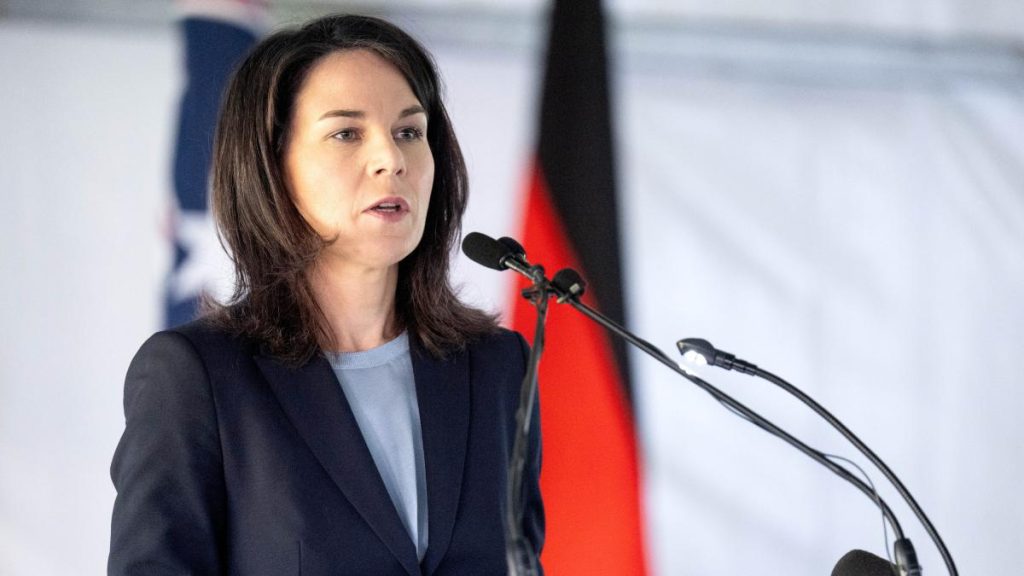The German government has accused Russia of a cyberattack on the email accounts of the SPD party last year, targeting the party leadership. Foreign Minister Baerbock identified a Russian hacking group responsible for the attack during a visit to Australia. In response, the German Foreign Office summoned the acting charge d’affaires of the Russian Embassy. The incident highlights the real threat that Russia poses to European security and peace, according to a spokesperson for the German Foreign Ministry. Baerbock announced consequences for the cyberattack during her visit to Australia, stating that state-sponsored Russian hackers had targeted Germany in cyberspace.
The cyberattack on the SPD last year was attributed to hackers from the Russian GRU intelligence agency by the German government. Baerbock pledged to take action in response to the attack. The German Foreign Office summoned the acting charge d’affaires of the Russian Embassy as a sharp diplomatic response to the incident. The Foreign Ministry spokesperson emphasized the significant threat posed by Russia to security and peace in Europe. Baerbock had previously announced potential consequences for the cyberattack, linking it to state-sponsored Russian hackers targeting Germany in cyberspace. The cyberattack on the SPD occurred in January 2023 and was made possible by a security vulnerability in Microsoft software.
Baerbock stated that investigations led by the German Foreign Office had conclusively attributed the cyberattack to the APT28 group controlled by the Russian GRU intelligence agency. The APT28 group, also known as Fancy Bear, has been active in cyberspying since at least 2004 and has engaged in disinformation and propaganda campaigns globally. The German Federal Office for the Protection of the Constitution has identified APT28 as being associated with the Russian military intelligence service GRU. The group was responsible for a significant cyberattack on the German Parliament in 2015 and targeting the Democratic Party in the US prior to the 2017 presidential election. German intelligence agencies collaborated on the investigation, including the Federal Office for the Protection of the Constitution, the Federal Intelligence Service, and the Military Counterintelligence Service.
The attack on the SPD is believed to be part of a broader campaign by APT28 targeting multiple European countries and focusing on government agencies and companies in the energy, IT, defense, and aerospace sectors. The North Atlantic Council, the primary decision-making body of NATO, expressed deep concern over increasing Russian cyberattacks targeting Germany, Estonia, Latvia, Lithuania, Poland, Czech Republic, and the UK. The attacks were described as part of a wider campaign of activities carried out by Russia in the Euro-Atlantic region, including sabotage, violence, cyber and electronic disruptions, disinformation campaigns, and hybrid operations. These activities were seen as a threat to the security of NATO partners, including Germany. Baerbock has emphasized the need for consequences in response to the cyberattack on the SPD, highlighting the severity of the threat posed by Russian state-sponsored hackers.


